
Five things you need to know this week about global education
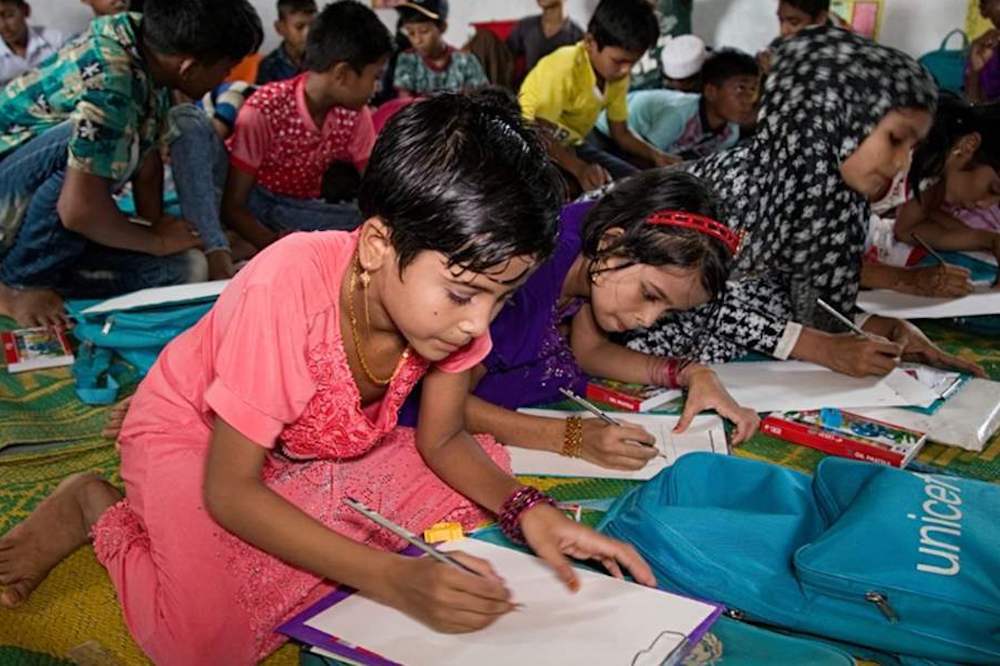
Children in conflicts, Education in emergencies, Refugees and internally displaced people
Our news roundup looks at a major breakthrough for the schooling of Rohingya refugee children and two new global champions for education in emergencies.
Formal education at last for Rohingya refugee children in Bangladesh
Bangladesh has finally agreed to offer formal education to Rohingya children living in refugee camps.
Children up to the age of 14 will go to school and those older will get skills training, the government announced. The first 10,000 will start formal schooling in April.
Campaigners have been calling for action for more than two years – with almost half of the 540,000 Rohingya refugee children in Bangladesh under the age of 12 missing out on school.
Last year the government banned donor-funded schools in the Cox’s Bazaar camps from giving formal education based on curriculums from Myanmar or Bangladesh. It also expelled many Rohingya students from local schools, saying they were using fake Bangladeshi identity cards.
But Mahbub Alam Talukder, Bangladesh’s refugee relief and repatriation commissioner, said: “The government has decided to allow formal education to Rohingya children under Myanmar’s curriculum so that they can continue their education in Myanmar if the repatriation process is started in the future.”
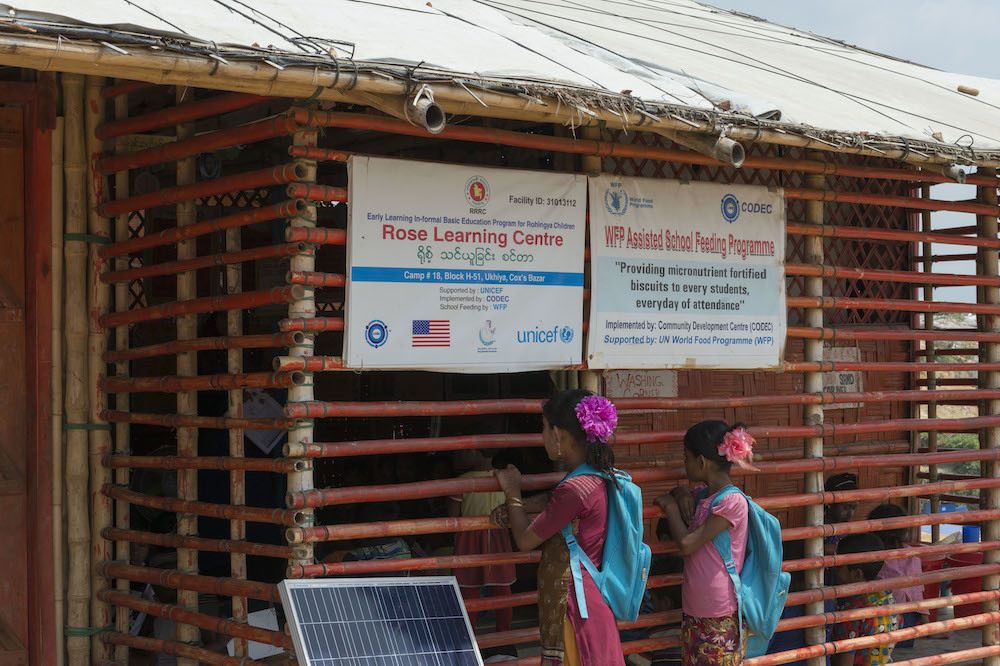
Rohingya girls attend lessons at a learning centre in Cox’s Bazar, Bangladesh (UNICEF)
He said they will be taught in existing learning centres and some more schools will be built, with teachers recruited through NGOs. More than 145,000 Rohingya refugee children currently attend 1,600 UNICEF-supported learning centres.
Mohammed Zobayer, a 19-year-old Rohingya refugee who works as a teacher at a learning centre, said: “Many have already lost two academic years. Now they can chase their dreams. It is like having a new life.”
The move was also welcomed by Saad Hammadi, South Asia Campaigner at Amnesty International, who said: “This is an important and very positive commitment by the Bangladeshi government, allowing children to access schooling and chase their dreams for the future. They cannot afford to lose any more time outside a classroom.”
More than 700,000 Rohingya people left Myanmar for Bangladesh after a military campaign in 2017. Around 60% of those fleeing ethnic cleansing in Rahkine state were children.
Iraqi children still impacted by violence
Children in #Iraq have endured immense suffering at the hands of ISIL & have been negatively impacted by operations by the Gov. of Iraq & its allies to counter ISIL – New report of UN Secretary-General on #Children & Armed Conflict
????https://t.co/0g49PmuRKF #ACTtoProtect pic.twitter.com/SPSuGt2SUx— Children and Armed Conflict (@childreninwar) January 29, 2020
Children in Iraq have endured terrible suffering at the hands of Islamic State and been affected by the government’s operations against the terrorists, the UN has reported.
“Despite the end of the so-called caliphate, the security situation remains fragile and children of Iraq continue to bear the brunt of violence,” said the UN’s Office for Children and Armed Conflict as it released statistics covering July 2015 to July 2019.
It said there were 236 verified attacks on schools, 79 schools used for military purposes and 296 children recruited by armed forces. More than 1,700 children were killed or maimed – mainly due to cross-fire, airstrikes, artillery shelling, mortars and rocket attacks.
“Children of Iraq have tragically suffered in the past years and it is urgent to take strong measures to remove remaining threats,” said Virginia Gamba, the Special Representative of the Secretary-General for Children and Armed Conflict.
Education Cannot Wait appoints two global champions
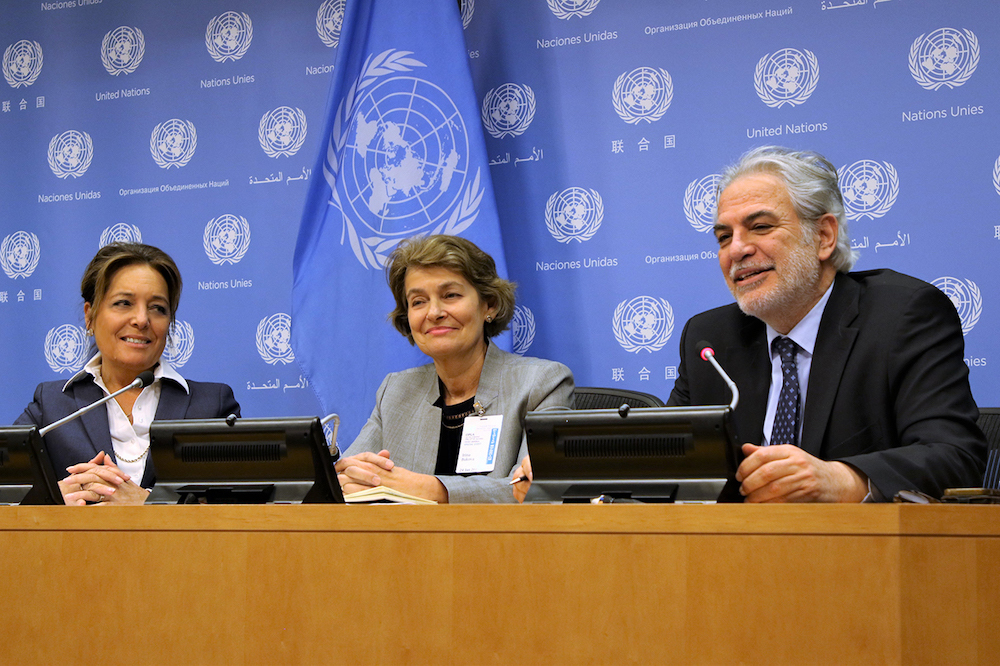
Former UNESCO Director-General Irina Bokova (left) and former European Commissioner for Humanitarian Aid and Crisis Management Christos Stylianides (ECW)
Education Cannot Wait (ECW) has appointed two global champions to join the movement to ensure children and youth caught in crises have access to the safety, protection and hope of an education.
They are former UNESCO Director-General Irina Bokova and Christos Stylianides, former European Commissioner for Humanitarian Aid and Crisis Management.
ECW has reached more than 2.8 million children since being launched as the first fund for education in emergencies in 2016.
“Education Cannot Wait is a pioneer of the big efforts to provide education to the 75 million children and youth whose education is disrupted by crises,” said Bokova. Stylianides said: “Education is the best, long-term way to break the cycles of violence and poverty and set communities on the path to peace and development.”
School meals help to ease education crisis
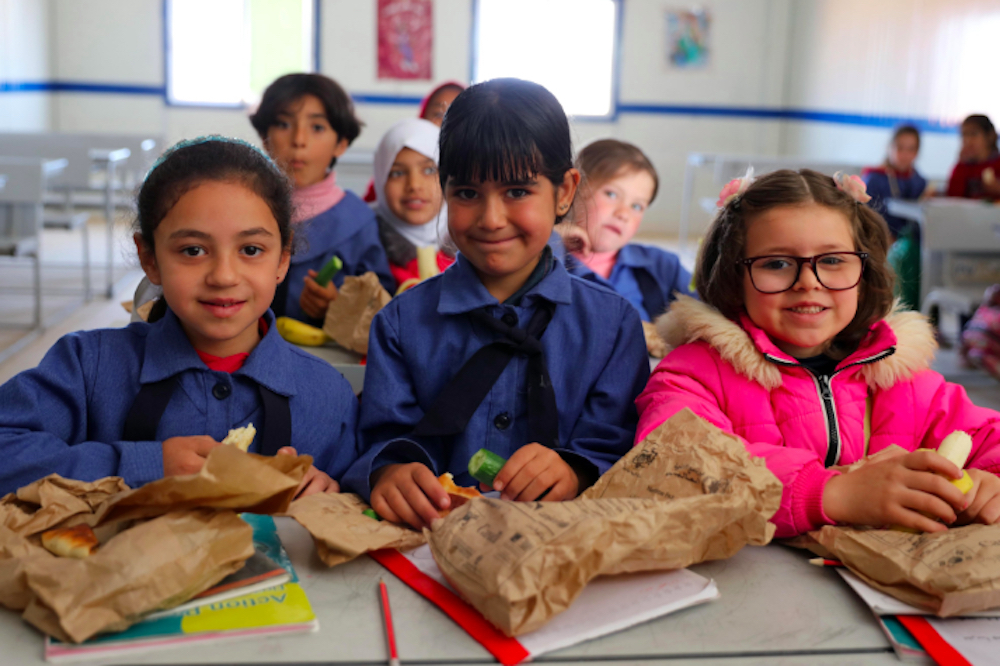
School feeding programmes are helping vulnerable children stay in school (WFP)
Two United Nations agencies have warned that long-running crises in the Middle East and North Africa (MENA) region could see 20 million children out of school by 2030.
There are already 15 million children missing out on education, said the UNESCO Regional Office for Education in the Arab States and the United Nations World Food Programme (WFP). They said the situation is affecting the development potential of countries in the region.
In the MENA region, WFP is supporting school feeding programmes in 11 countries to boost school attendance rates, reduce gender learning gaps and contribute to children’s health and learning capacity.
Muhannad Hadi, WFP Regional Director for the Middle East, Central Asia and Eastern Europe, said: “Our school meals programmes have proved their value in the most challenging and complex environments of all – the aftermath of emergencies and during protracted crises.”
60,000 reached by charity's education projects
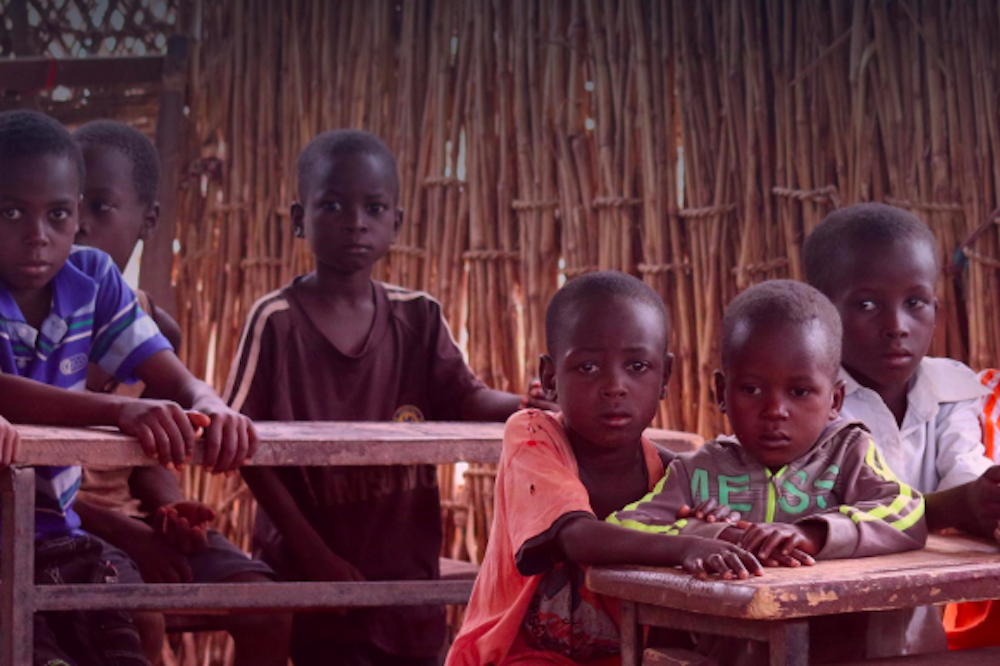
Children at school in Somalia with the help of Qatar Charity (Qatar Charity)
Almost 60,000 children and adults benefited from educational projects implemented by Qatar Charity during 2019 in Somalia, Yemen, Tunisia, Syria, Palestine and Nepal.
The organisation reported that its education projects include sponsoring refugee students, maintaining schools, providing free education to children in need and paying salaries to teachers and school staff. It also helps to educate Rohingya refugees.
Qatar Charity has also provided salaries to teachers and staff working on an e-learning project at schools in northern Syria.
Its various humanitarian programmes – including food, health and sanitation – benefited more than eight million people last year in crisis and disasters areas in 34 countries.
More news

